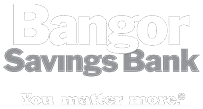
In the world today, consumers rely heavily on their credit and debit cards to make purchases both large and small, such as pumping gas, online shopping, or even getting our morning coffee.
Credit and debit cards are convenient to use. They've made our lives simpler, but they've also increased the chances of becoming a victim of identity theft.
If thieves steal your credit or debit card account numbers, they could make unauthorized purchases before you notice your card is missing, your financial institution catches the card activity, or you receive your next monthly statement and notice unusual transactions.
It's important for consumers to take the steps necessary to protect themselves when using credit or debit cards.
Using your cards safely
Financial institutions provide several tips for using credit and debit cards safely.
First, they recommend storing your credit or debit cards in a safe place when you're not carrying them with you. Treat these cards much like you'd treat cash or checks.
Some people are comfortable with sending personal information through e-mail messages. However, you should never send your credit card or debit card number to anyone in an e-mail message, even if you trust the recipient. Hackers may be able to intercept your e-mail messages. You also should never give out your credit or debit card number over the telephone unless you initiated the call. For instance, if you call a hotel to make reservations, it's acceptable to give out your credit card number to secure that reservation. However, if someone calls you saying that they are from your credit card issuer, don’t give this person your credit card number. It could be a scammer trying to nab your personal information. Your credit card issuer will never call you and then ask for your account number.
Finally, review your account statement each time it arrives. Search for any unauthorized purchases or withdrawals.
Added protection
Consumers who are hoping to avoid credit card and debit card fraud should follow other industry leader suggestions as well.
Shred your bank account and credit card account statements before recycling them or throwing them in the trash.
You should also shred any unsolicited pre-approved credit card offers that find their way to your mailbox. Some thieves might use these offers to open credit card accounts in your name, which could negatively impact your credit report and score.
Experts also recommend that you contact the issuer of your credit and debit cards as soon as you believe that someone may have stolen your cards or your account information. The faster you call, the faster your financial institution can shut down your stolen card or account. Some companies also have the option to turn your card off online or through their mobile application.
If someone does steal your credit or debit cards remember that you are not required to pay for any unauthorized purchases that the thief makes. Consider it a form of protection that doesn't come with cash. When someone steals your cash, you have no way to get that money back. When someone makes unauthorized purchases on your credit card, you can inform your card issuer. You're then spared having to cover the costs of these illegal purchases.
Remember to take steps to protect yourself.
